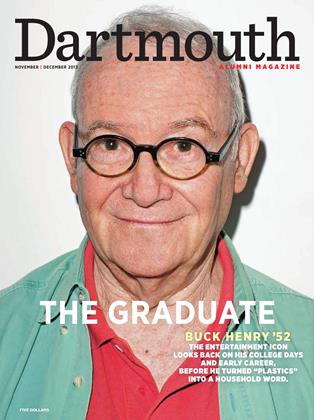“The political process has moved beyond gridlock to complete paralysis,” writes Wheelan in his book The Centrist Manifesto, which calls for a new, Centrist movement to stand up to “counterproductive partisan posturing.” He already has a steering committee and an executive director who’ve raised roughly $100,000, with hopes to empower more moderate and ideologically coherent views by founding this new political organization. Here’s Wheelan’s plan of action:
WRITE IT ALL DOWN
“At some point it became apparent to me that I was a person without a party, and that there were a lot of people like me. I wrote the book to put forward the Centrist Party’s goals and show how it can succeed. There’s currently a sense that things are worse than ever before, and it’s gotten to a point that people are willing to entertain something new and different.”
DEVELOP CONNECTIONS
“‘you know this can happen if you can persuade people this can happen,’ political commentator Morton Kondracke ’60 told me. We’re working to get Silicon Valley folks to step out and embrace what we’re doing, get current Republicans and Democrats to defect publicly and raise a significant amount of money to attract and support credible candidates. The hard thing is that we need to do all those things before we can do any of them.”
BE ACTION ORIENTED
“The Centrist Party pushes people to get involved on Facebook and our website, www. thecentristmovement. org not to be confused with www. uscentrist.org, an inactive group that still has a web presence where they can join the party, donate and volunteer. We have organizers in 13 states. People need to actively engage the political process: Raise money, run for office, make phone calls, send out books.”
THINK LIKE PAUL TSONGAS '62
“In 1992 Tsongas, a Democrat, was the only declared candidate against George H.W. Bush when Bush had a 91-percent approval rating. He ran because he foresaw that we were in fiscal trouble, and he was the messenger who put these fiscal issues on the horizon in a way that made people aware that something had to change. What Tsongas did was brave and very inspirational. ‘I don’t have to win,’ he once told me. ‘I just have to run a race that my grandchildren will be proud of.’”
 View Full Issue
View Full Issue
More From This Issue
-
 Feature
FeatureStrangers in a Strange Land
November | December 2013 By Svati Kirsten Narula ’13 -
 FEATURE
FEATUREThe Lottery
November | December 2013 By DENIS O’NEILL ’70 -
 COVER STORY
COVER STORYThe Graduate
November | December 2013 By Ty Burr ’80 -
 Feature
FeaturePursuits
November | December 2013 By ZOEY SLESS-KITAIN -
 Feature
FeatureNotebook
November | December 2013 By JOHN SHERMAN -
 RETROSPECTIVE
RETROSPECTIVEHe Wept Alone
November | December 2013 By ROBERT SULLIVAN ’75
Charles Wheelan ’88
-
 Cover Story
Cover StoryBEYOND ME
December 1989 By Charles Wheelan ’88 -
 Cover Story
Cover StoryCan the Family Doctor Recover?
NOVEMBER 1993 By Charles Wheelan ’88 -
 Feature
FeatureWhat Comes NEXT
JUNE 1998 By Charles Wheelan ’88 -
 Alumni Opinion
Alumni OpinionDollars and Sense
Jan/Feb 2004 By Charles Wheelan ’88 -
 FACULTY OPINION
FACULTY OPINIONLive Free or Die?
Jan/Feb 2009 By Charles Wheelan ’88 -
 Article
ArticleReel Economics
September | October 2013 By Charles Wheelan ’88







